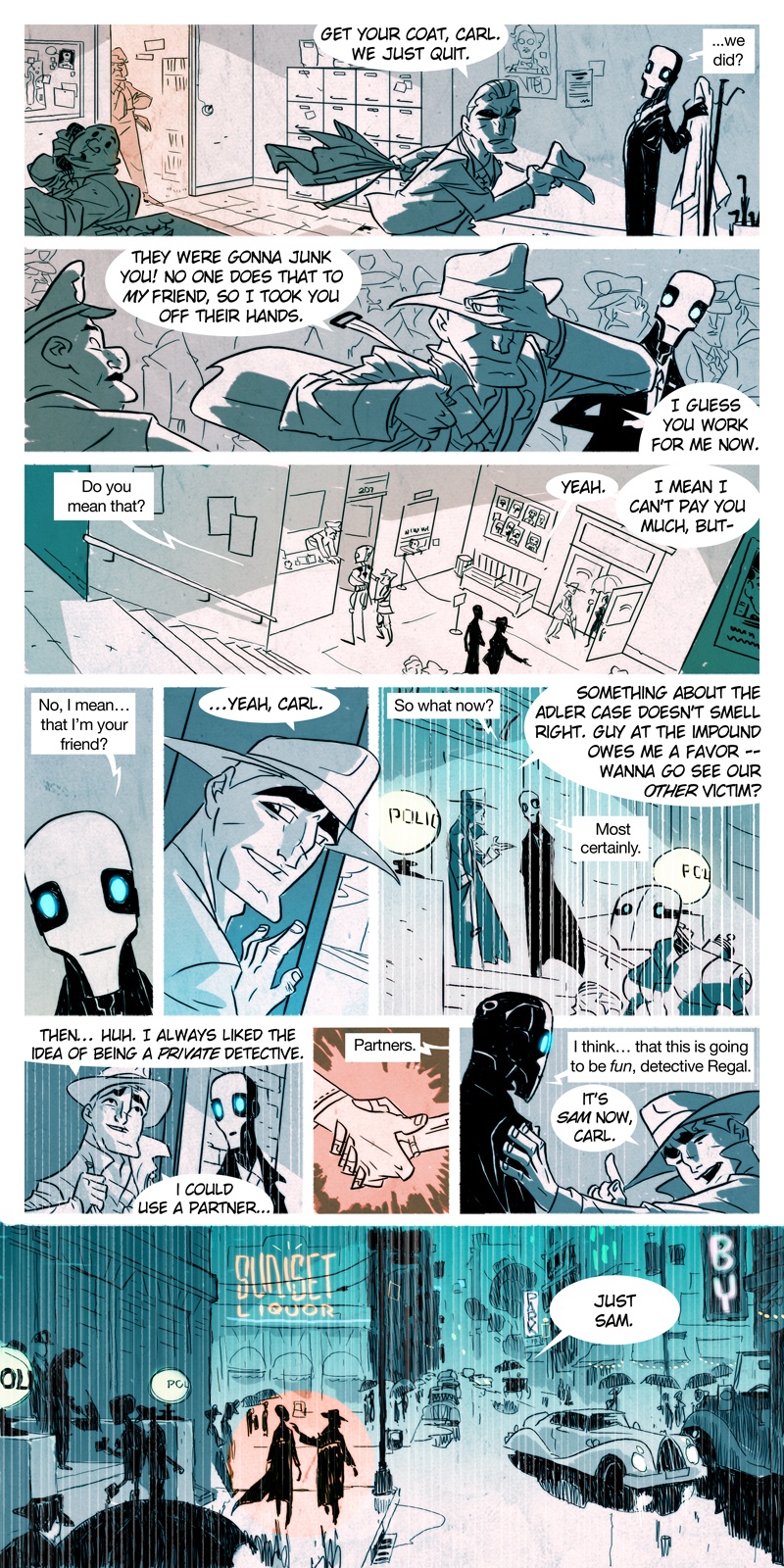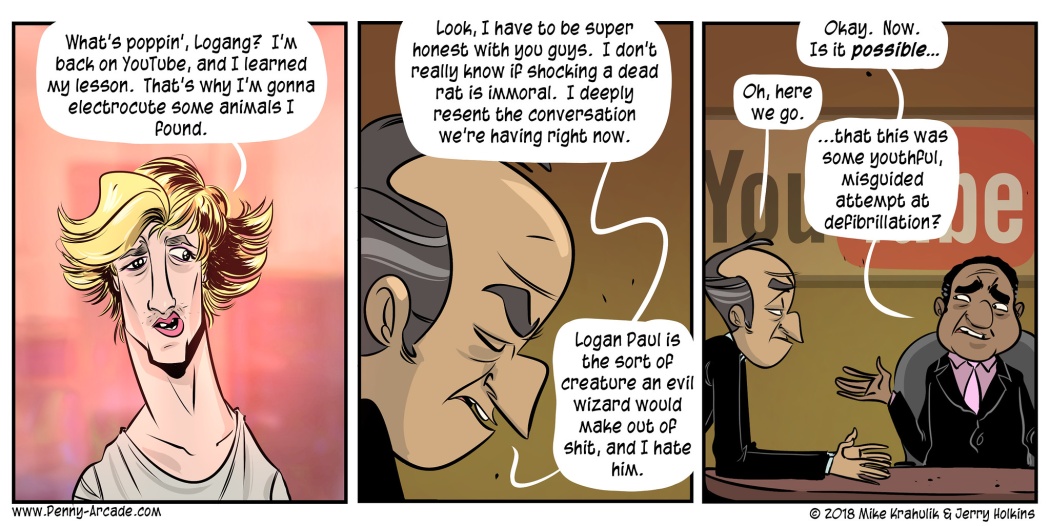The Blood and Oil have finally run out in this, the fifth chapter. What a tremendous amount of fun that was, and we must all thank Ben Caldwell for drawing it and Gary Whitta for writing it.
It's rare that Gabriel and I get a chance to "read" Penny Arcade along with actual readers, but we had no preview really of what was about to hit the site on this project. It was exhilarating, and it helped us understand how interesting Automata could be. When something just falls out of your head, as things tend to do around here, we tend to like or dislike it based on what means to us - what it allows us to do. We have different criteria for what constitutes success than a reader might, as even a brief trip through our archive will attest. Reading this Automata bit allowed us to see it from something approaching your own perspective, the result being that if we don't come at things like Lookouts and Automata with a profound seriousness we will have squandered your enthusiasm. That is not something we intend to do.
I eventually played enough Starcraft that I wanted to try Company of Heroes Online or reinstall one of the Dawn of War games, which I'm sure is an act of villainy. It's very difficult not to be tantalized (read: manipulated) by the presentation of this software, and I've chosen to be manipulated for my own entertainment, enjoyment, and return on investment, but that is is a matter quite apart from being ignorant of the gulf between Starcraft II and what constitutes the state of the art.
Again: you can't not like it. I'm not an absolute jerk. They've leveraged the oldest verbs of RTS to give us a highly calculated, almost algorithmically "satisfying" form of amusement. But to the extent that the game is different - outside of the Wing Commander cribbing and the rancid script - those differences are beyond my level of play.
Warcraft III was, by comparison, chockablock with innovations and crazy bullshit - the sort of prayerful long pass that a company with Blizzard's talent and resources can bring to fruition. I don't know who else is supposed to take these chances. Beyond its narrative strengths, which were manifold, its technological and philosophical bones gave rise to Defense of the Ancients, which I've argued constitutes an entirely new genre. It was a game so bold that it contained games within it. Where is that bold heart?
For the consumer, maybe "polish" is - as an ideal - the highest calling of the medium. I'm not satisfied with that. At our best we advocate with our selections, curating it thereby. In that spirit, let us be clear with one another. We may call Starcraft II "old school," the electronic equivalent of comfort food, and these things are not untrue in the particulars. But there is a safety in thought and deed here that borders on cowardice.
(CW)TB out.

